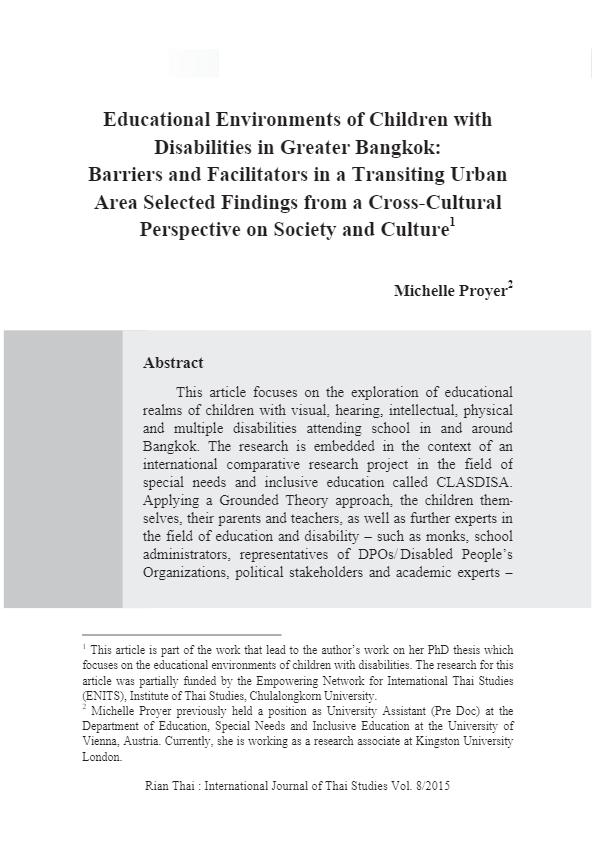Michelle Proyer
Abstract
This article focuses on the exploration of educational realms of children with visual, hearing, intellectual, physical and multiple disabilities attending school in and around Bangkok. The research is embedded in the context of an international comparative research project in the field of special needs and inclusive education called CLASDISA. Applying a Grounded Theory approach, the children themselves, their parents and teachers, as well as further experts in the field of education and disability – such as monks, school administrators, representatives of DPOs/ Disabled People’s Organizations, political stakeholders and academic experts – were invited to share their experiences regarding education in the course of interviews and focus group discussions. Special instruments had been prepared to investigate perspectives of those children who were unable or preferred not to speak. Sign Language interpreters were provided and picture cards made available for the children to express their opinion non-verbally or in an alternative way. This article focuses specifically on qualitative data that was collected during four phases of field research in the course of almost three years. All steps were coordinated and conducted in collaboration with a local Thai research team. This was to guarantee language/culture-related competency and sensitivity at all stages of the research process, as well as a broad perspective on factors that facilitate or restrict education. The research focuses on how these factors are influenced or shaped by cultural or societal conditions and considers how the latter might differ from other countries or places in Thailand. Currently, data is being analyzed employing the qualitative data analysis (QDA) tool ATLAS.ti. This article focuses on the description of the study design, its international contex-tualization and the discussion of first preliminary findings.
(Published in Rian Thai: International Journal of Thai Studies, Volume 8/2015, Page 123-145)
Full Text : Download
